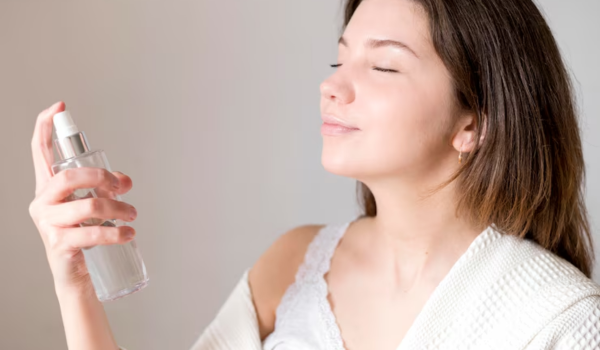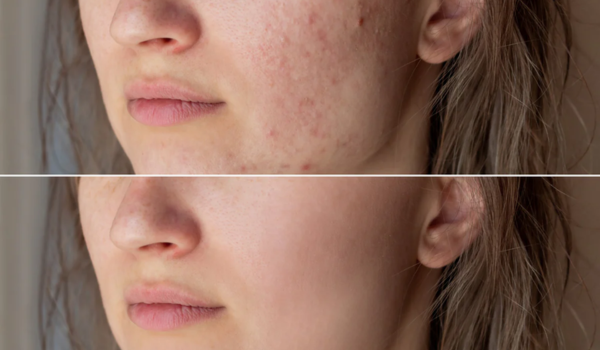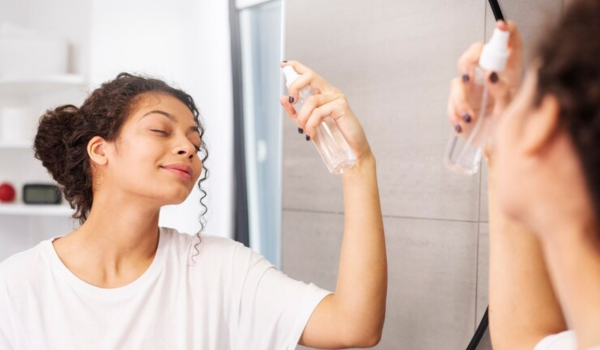Salt Water for Acne: Effective Home Remedy Guide
Salt Water for Acne: Natural, Effective, and How to Use It Safely

Acne is one of the most common skin conditions affecting millions of people worldwide. From stubborn pimples to painful cysts, dealing with acne can be frustrating and impact self-confidence.
While countless treatments and products are available, some turn to natural remedies, one of the simplest being salt water.
But can salt water really help clear acne? How does it work, and what’s the best way to use it without causing harm?
In this extensive guide, we’ll explore everything you need to know about salt water for acne, including the science behind it, practical tips, and what to watch out for.
Understanding Acne: Causes and Challenges
Before diving into salt water treatments, it’s essential to understand what acne is and why it develops.
Acne forms when hair follicles become clogged with oil (sebum), dead skin cells, and bacteria, especially Cutibacterium acnes (formerly Propionibacterium acnes).
This results in inflammation, redness, and sometimes infection, producing various blemishes like whiteheads, blackheads, pustules, and cysts.
Key factors contributing to acne include:
- Excess sebum production
- Hormonal fluctuations
- Bacterial growth
- Inflammation
- Diet and lifestyle
- Genetics
Effective acne treatment often requires a multifaceted approach, addressing both external and internal causes.
Why Salt Water? The Science Behind It
Salt water has been used for centuries for its healing and cleansing properties. It contains sodium chloride (NaCl) and trace minerals that provide several benefits for the skin, especially acne-prone skin.
1. Antibacterial Effects
- Salt water creates a hostile environment for many bacteria, including C. acnes, which thrives in oily and clogged pores. The salt can help reduce bacterial colonies on the skin’s surface, lowering the chance of infection and pimples.
2. Anti-inflammatory Properties
- Salt water can soothe inflamed skin. When used correctly, it helps reduce redness and swelling associated with acne lesions, accelerating healing.
3. Exfoliation
- Salt acts as a natural exfoliant, helping remove dead skin cells that clog pores. Regular exfoliation can prevent new breakouts and improve skin texture.
4. Balances Skin pH
- Maintaining the skin’s natural pH is vital for barrier function. Salt water can help regulate pH, though this depends on concentration and formulation.
5. Promotes Healing
- Salt water is often used in wound care for its ability to promote tissue repair and prevent infection, which can translate to faster acne lesion healing.
Different Types of Salt Used for Acne
Not all salts are created equal. Here are common types used in skincare and their unique benefits:
- Sea Salt: Contains trace minerals like magnesium, calcium, and potassium that can nourish the skin and boost healing.
- Himalayan Pink Salt: Rich in minerals, it may offer additional detoxifying and rejuvenating effects.
- Epsom Salt (Magnesium sulfate): Known more for soothing muscles but also used in baths to reduce inflammation.
- Table Salt (Sodium chloride): The most common salt, effective but lacks trace minerals.
Choosing natural, unrefined salts without additives or iodine is best for skin care.

How to Use Salt Water for Acne: Methods and Recipes
1. Salt Water Facial Rinse
Ingredients:
- 1 cup warm distilled or filtered water
- 1 teaspoon natural sea salt or Himalayan salt
Instructions:
- Dissolve the salt thoroughly in warm water.
- Use it as a final rinse after cleansing your face, swishing gently and letting it air dry.
- Repeat daily or every other day depending on skin sensitivity.
2. Salt Water Spot Treatment
Ingredients:
- 1 teaspoon sea salt
- A few drops of water
Instructions:
- Mix salt with enough water to form a thick paste.
- Apply directly on pimples with a cotton swab.
- Leave on for 10-15 minutes and rinse off with warm water.
- Use 2-3 times a week.
3. Salt Water Bath
Adding salt to a bath can help with overall skin inflammation:
Ingredients:
- 1 cup sea salt or Epsom salt in a warm bath
Instructions:
- Soak for 15-20 minutes 1-2 times per week.
- Pat skin dry gently.
4. Salt Scrub for Exfoliation
Ingredients:
- 2 tablespoons fine sea salt
- 1 tablespoon olive oil or jojoba oil
Instructions:
- Mix until you get a grainy paste.
- Gently massage on damp skin for 1-2 minutes.
- Rinse thoroughly and moisturize.
Benefits Backed by Research
Though clinical studies specifically on salt water for acne are limited, evidence supports salt’s general skin benefits:
- Antibacterial and antifungal effects: Studies show saline solutions reduce harmful skin microbes.
- Wound healing: Saline is a standard wound cleaner in hospitals due to safety and efficacy.
- Anti-inflammatory: Salt baths have shown reductions in skin inflammation, potentially helpful in acne.
Important Precautions and Tips
While salt water can be beneficial, improper use may cause irritation or dryness. Here’s how to avoid pitfalls:
- Start Slowly: Introduce salt water rinses gradually to monitor skin response.
- Avoid High Concentrations: Overly salty solutions can damage the skin barrier.
- Moisturize After Use: Salt can dry skin, so apply a gentle moisturizer afterward.
- Don’t Over-Exfoliate: Limit scrubs to 1-2 times per week.
- Avoid Open Wounds: Salt can sting and irritate cuts or raw acne lesions.
- Consult a Dermatologist: Especially if you have sensitive or very dry skin.
Complementary Skincare Tips for Acne
To maximize benefits, pair salt water treatments with a comprehensive skincare routine:
- Gentle Cleanser: Use non-comedogenic cleansers to avoid excess oil buildup.
- Non-comedogenic Moisturizer: Prevent dryness without clogging pores.
- Sun Protection: Salt water may increase photosensitivity; always use sunscreen.
- Healthy Diet and Hydration: Anti-inflammatory foods and plenty of water support skin health.
- Avoid Touching Your Face: Minimize bacteria transfer and irritation.
- Regular Dermatologist Visits: For professional advice and treatments.

When Salt Water May Not Be Enough?
If your acne is severe (cystic acne, nodules) or does not improve with home remedies, professional treatments may be necessary:
- Prescription topical treatments (retinoids, antibiotics)
- Oral medications (antibiotics, hormonal therapy)
- In-office procedures (chemical peels, laser therapy)
Salt water can be a helpful adjunct but should not replace prescribed care for serious acne.
Real User Experiences: Salt Water for Acne
Many users report:
- Reduced redness and inflammation after salt water rinses.
- Fewer new breakouts when combined with good hygiene.
- Some dryness that requires balancing with moisturizers.
- Quick relief from occasional pimples using salt water spot treatment.
These anecdotal reports highlight salt water’s potential as a natural, affordable, and easy-to-use acne aid.
FAQs About Salt Water and Acne
Can salt water make acne worse?
- If overused or used at high concentrations, salt water can irritate and dry out the skin, potentially worsening acne.
How often should I rinse my face with salt water?
- Start with 2-3 times per week. If tolerated well, you can increase frequency, but avoid daily rinsing unless recommended.
Is salt water better than commercial acne products?
- Salt water is a gentle, natural option but typically less potent than medicated treatments. It’s best for mild acne or as a complementary therapy.
Can I drink salt water to help acne?
- No. Drinking salt water is unsafe and not linked to acne treatment.
Does salt water help with oily skin?
- Salt water may help reduce excess oil temporarily, but balancing hydration and oil production requires a comprehensive skincare approach.
Conclusion
Salt water is a natural, accessible remedy with antibacterial, anti-inflammatory, and exfoliating properties that can help manage mild to moderate acne.
It offers an affordable option for those seeking alternative or complementary treatments. However, salt water is not a miracle cure and should be used thoughtfully to avoid irritation.
Pairing salt water rinses with a balanced skincare routine, healthy lifestyle habits, and professional advice will give you the best chance for clear, healthy skin.
If you’re struggling with persistent or severe acne, consult a dermatologist for personalized treatment options. Salt water can be a supportive ally on your journey to healthier skin simple, natural, and time-tested.
.